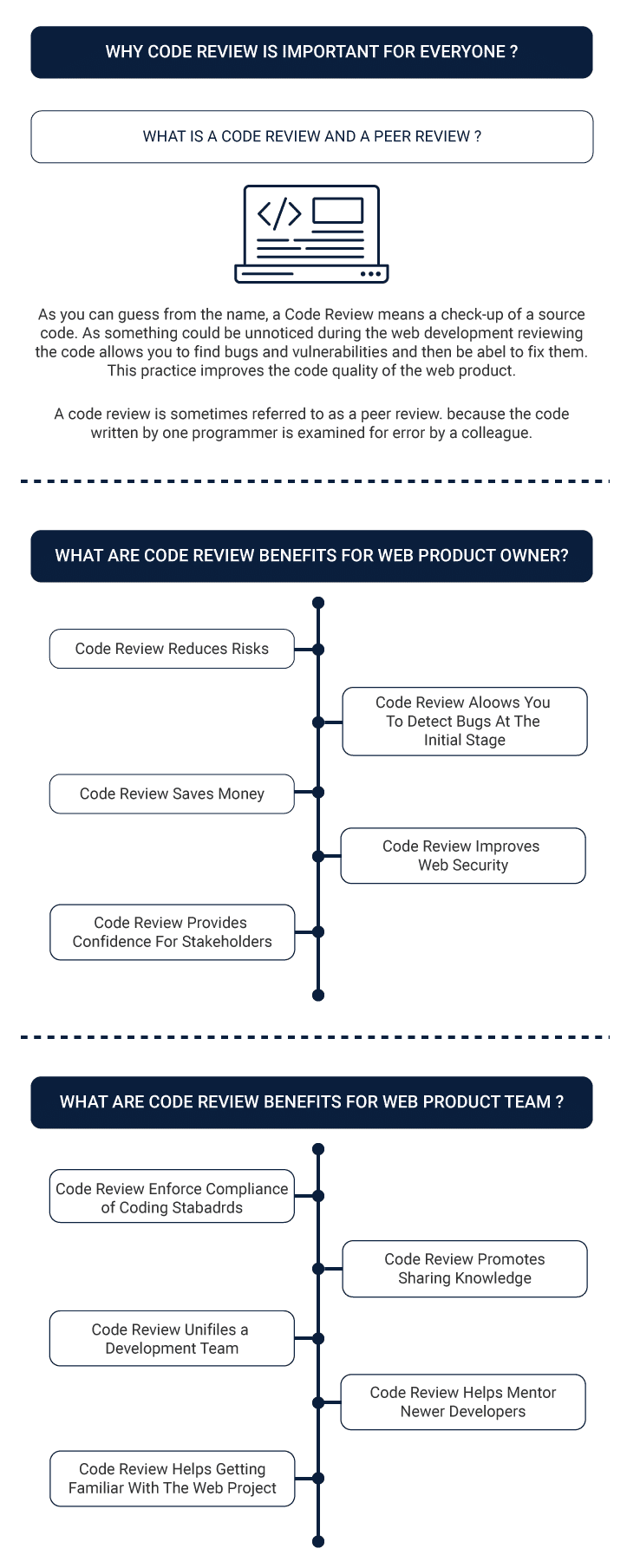
Optimize Development: Code Review Best Practices for Efficiency
Code review is a critical phase in the software development lifecycle, providing an opportunity to enhance code quality, catch bugs, and share knowledge within the team. Let’s explore best practices for effective code reviews that contribute to a streamlined and efficient development process.
Establish Clear Objectives for Code Reviews
Before diving into the code review process, it’s essential to establish clear objectives. Define what you aim to achieve through code reviews—whether it’s identifying bugs, ensuring adherence to coding standards, or sharing knowledge. Clear objectives set the tone for focused and productive code review sessions.
Conduct Regular, Small-Scale Reviews
Regular, small-scale code reviews are more effective than infrequent, large-scale ones. Aim for shorter, more frequent code review sessions to maintain focus and prevent reviewer fatigue. This approach also facilitates quicker feedback loops, enabling developers to address issues promptly.
Encourage a Positive and Constructive Tone
Foster a positive and constructive atmosphere during code reviews. Emphasize collaboration over criticism, focusing on improving code rather than blaming individuals. A positive tone encourages open communication and creates a culture where team members feel comfortable sharing and receiving feedback.
Automate Where Possible
Leverage automated tools to streamline the code review process. Automated tools can catch common issues, such as code style violations or potential bugs, allowing reviewers to focus on more complex aspects of the code. Integrating linters and static code analysis tools into your workflow enhances code quality.
Provide Clear and Actionable Feedback
When providing feedback, ensure it is clear, specific, and actionable. Instead of vague comments like “This code needs improvement,” provide concrete suggestions on how to enhance the code. Clear and actionable feedback accelerates the resolution of issues and helps developers understand the proposed changes.
For an in-depth exploration of code review best practices, check out Code Review Best Practices Tips.
Rotate Reviewers for Fresh Perspectives
Rotate reviewers regularly to introduce fresh perspectives. Different team members bring diverse experiences and insights to the code review process. Rotating reviewers not only enhances the overall code quality but also promotes knowledge sharing and cross-functional collaboration.
Utilize Code Review Checklists
Code review checklists serve as valuable guides for both reviewers and developers submitting code. Create checklists that cover common aspects such as code style, error handling, and security considerations. Checklists ensure consistency in reviews and help maintain a high standard of code quality.
Consider Impact on Overall Architecture
During code reviews, it’s crucial to consider the impact of changes on the overall architecture of the codebase. Evaluate whether proposed changes align with the project’s architecture and long-term goals. Discuss architectural decisions to ensure that code changes contribute positively to the system.
Promote Knowledge Sharing and Mentorship
Code reviews are not only about catching errors but also about sharing knowledge and fostering mentorship. Encourage experienced team members to provide guidance to junior developers through code reviews. This collaborative approach enhances team cohesion and promotes continuous learning.
Document Code Review Decisions
Documenting code review decisions is essential for future reference and learning. Keep records of discussions, decisions made during code reviews, and the reasons behind them. Documentation serves as a valuable resource for onboarding new team members and helps maintain consistency in coding practices.
In conclusion, implementing effective code review best practices is integral to maintaining a high level of code quality and fostering a collaborative development environment. By following these tips, teams can optimize their code review process, resulting in more efficient and impactful software development.



![Average Renovation Costs in [Your Location] Average Renovation Costs in [Your Location]](https://images.unsplash.com/photo-1517103278237-421a1cb020fa?fm=jpg&q=60&w=3000&ixlib=rb-4.0.3&ixid=M3wxMjA3fDB8MHxzZWFyY2h8M3x8aG93JTIwbXVjaCUyMHJlbm92YXRpb24lMjBjb3N0fGVufDB8MHwwfHx8Mg%3D%3D)






